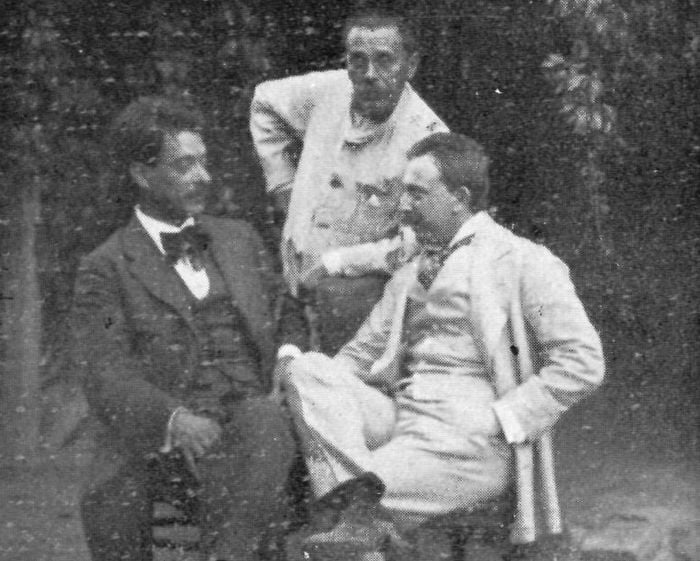It was for this reason that my father appointed him Stratopedarch of the whole East and promoted him to very high honours, especially after he had had a proof of his courage. Once when the Emperor, my father, joined battle with Robert, as we have related, in the heat of that battle a certain Frank exceedingly tall, directed his spear, spurred on his horse and fell upon Aspietes like a thunderbolt. The latter grasping his sword received the Frank’s terrific onslaught and was wounded most severely, for the spear pierced his lung and passed out through his spine.
However Aspietes was not perturbed by the blow nor unhorsed, but settling himself more firmly in his seat, struck the barbarian on his helmet and cut both the helmet and the head in half. And then both f ell from their horses, the Frank dead and Aspietes still breathing. His attendants picked him up, all drained of blood, tended him well and then carried him to the Emperor, shewed him the spear and the wound and reported the death of the Frank. The Emperor was for some reason or other mindful of this former act of bravery and daring and taking it in conjunction with his descent and consequent reputation sent him as a [presumedly] able general to Cilicia to oppose Tancred and appointed him Stratopedarch, as I have just written.
Stlilanitza without delay
III This is sufficient about these men. To the various generals engaged in the West he sent other letters enjoining them to march to Stlilanitza without delay. What happened next? Did he after summoning the protagonists, relapse into ease, and enjoy his leisure and the pleasure of the baths, as the Emperors who prefer a bestial life, are wont to do? No, certainly not, why he could not even endure staying in the palace any longer. He left Byzantium, as stated above, travelled through the western countries, and reached Thessalonica in the month of September in the fourteenth Indiction and in the twentieth year of his taking up the reins of government.
And he constrained the Empress to go with him [305] against her will. For her disposition was of such a nature that she did not willingly appear much in public, but generally kept at home and attended to her duties, such as reading the books of the Saints and communing with herself and doing acts of kindness and charity to men, especially to those who were, as she saw from their conduct and manner of life, true servants of God, and she persevered in prayers and a succession of hymns. Whenever it behoved her to appear in public as Empress on some very necessary occasion, she was overcome with shyness and her cheeks were mantled with blushes.
Read More about A Legend of the Dance part 2








